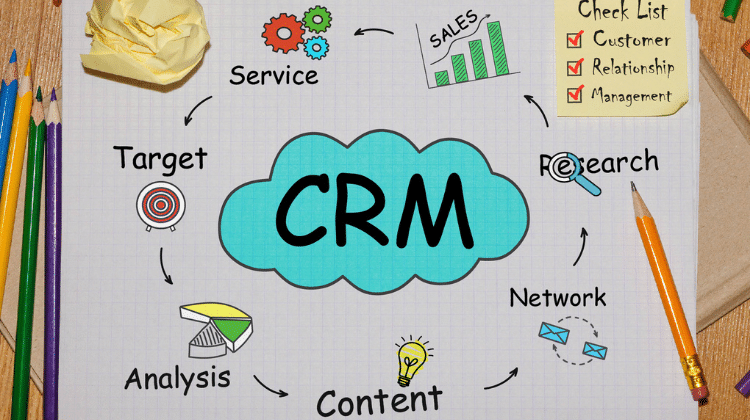
Brought to you by EngageBay Inc.:
HubSpot is a fantastic inbound marketing and sales software designed for businesses who want to use tried-and-true methods to attract new clients and consumers. But it’s not the only software that you can use. Getting more leads is the name of the game in online business, so looking for HubSpot alternatives is smart.
There are several HubSpot alternatives on the market, and companies should compare and contrast them before making a decision. Why? You might come across a solution that is less expensive or more in line with your company’s goals. Below is a list of some of the best HubSpot alternatives:
1. EngageBay:
EngageBay is the first marketing automation tool to consider. Sreedhar Ambati, the founder of EngageBay, set out to develop a cheaper alternative to HubSpot that could be used by startups and small businesses. EngageBay is an all-in-one platform that offers CRM, sales, and marketing services.
Cost:
EngageBay’s marketing automation, like many of its other services, is free. If you want to use more of Engagebay’s features, you can upgrade to the All-in-One plan for $8.99 per month, the CRM & Sales Bay plan for $7.79 per month, or the Marketing Bay plan for $7.79 per month.
Advantages:
- The majority of EngageBay’s marketing automation services are free. When you combine that with its free CRM, your small business will get started with a lot of useful tools at no cost.
- Other Engagebay plans are reasonably priced and suitable for small businesses.
- With EngageBay’s all-in-one suite, you can pay for sales and marketing tools all in one place!
Disadvantages:
For the time being, EngageBay only integrates with SendGrid, Mandrill, Xero, Postmark, and Zapier, which could be inconvenient. There will be more integrations in the future.
2. Infusionsoft:
The next option on the list is Infusionsoft, which is also known as Keap. Eric and Scott Martineau formed this company in 2001 with Clate Mask, who is now the company’s CEO. Keap launched its automated sales lead scripts in 2004, just a few years after it was created, extending its services into SaaS.
Cost:
Keap provides its customers with three plans to choose from. The Keap Grow strategy for new companies and startups is a good starting point. For one user and 500 contacts, this plan begins at $79 per month.
Advantages:
- Having the option to choose between simple and advanced automation allows you to gain experience automating repetitive tasks before moving on to more complex concepts.
- You can sign up for a 14-day free trial with Keap.
- Keap’s wide range of services may be useful for more than just automation.
Disadvantages:
- Keap’s plans can appear to be inexpensive, but keep in mind that at the advertised rates, you’re only paying for one user and 500 contacts.
- If you want more, be prepared to increase your monthly bill by hundreds of dollars.
2. Pardot:
Since Pardot is a Salesforce business, you can be assured that it’s led by competent executives. It focuses on B2B marketing automation and includes tools such as advanced email analytics, lead nurturing, ROI monitoring, and more.
Price:
Pricing starts at $1,000 a month and increases to $3,000 a month.
Advantages:
- Salesforce makes it simple to automate lead nurturing operations.
- A fantastic collection of advanced reporting features
- Access to artificial intelligence (AI) for email campaigns and other projects
- A/B research and landing page builder software
- Customization is fantastic for marketing campaigns.
Disadvantages:
- One of the more costly marketing automation software solutions
- It takes some practice until you feel completely at ease.
Who is This Most Appropriate For?
The price is a little high, so you’ll need a big wallet, but the resources you get are quite good. If you don’t want to risk working with a new or unreliable organization, Pardot has all the credentials you’ll need.
4. Netsuite CRM
NetSuite CRM is another option for CRM Software. CRM Software is a widely used technology, and many people are seeking quick, secure software solutions with campaign management, marketing ROI analytics, and partner relationship management. Other important factors to consider when researching an alternative to HubSpot include projects and user interface.
NetSuite, like all ERP software, is an investment, but the value extracted from that investment can be a no-brainer for many businesses, especially those that have had a bad experience integrating and managing multiple “best of breed” applications in the past. A system consolidation will easily end up saving a company a lot of money and time.
Advantages:
The most significant benefit of NetSuite is its potential to improve departmental coordination for effective decision-making. Employees from various departments don’t have to wait for device upgrades or re-enter data for their own needs. Rather, data from various departments is exchanged in real time, including payroll, sales, and other critical fields.
NetSuite is particularly useful for mid-size and larger ecommerce firms as well as manufacturing facilities where intelligent inventory management is critical to customer satisfaction. You can monitor customer shipments, handle payments, and keep things running smoothly with NetSuite software. NetSuite can also help you prepare for the future by allowing you to scale your operations for expansion while maintaining accurate financial management. In addition to all of that, it’s an alternative for HubSpot.
Disadvantages:
Though on-premise ERP solutions are becoming extinct, some businesses still need an on-premise ERP solution or a hybrid approach. NetSuite is not a viable choice in this case since it can only be used in a public multi-tenant environment hosted by Oracle NetSuite, which is not appropriate for certain industries or implementation methods.